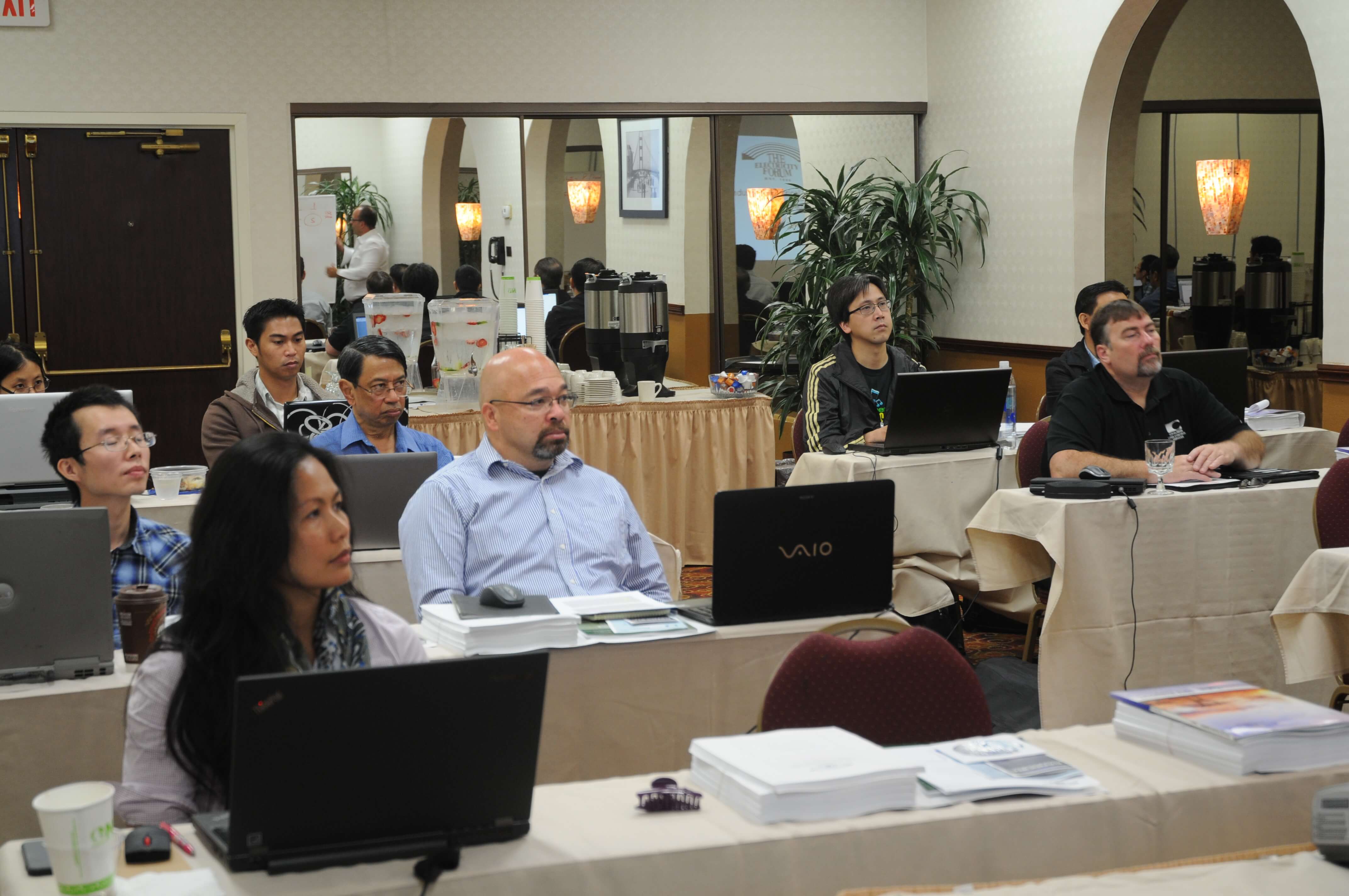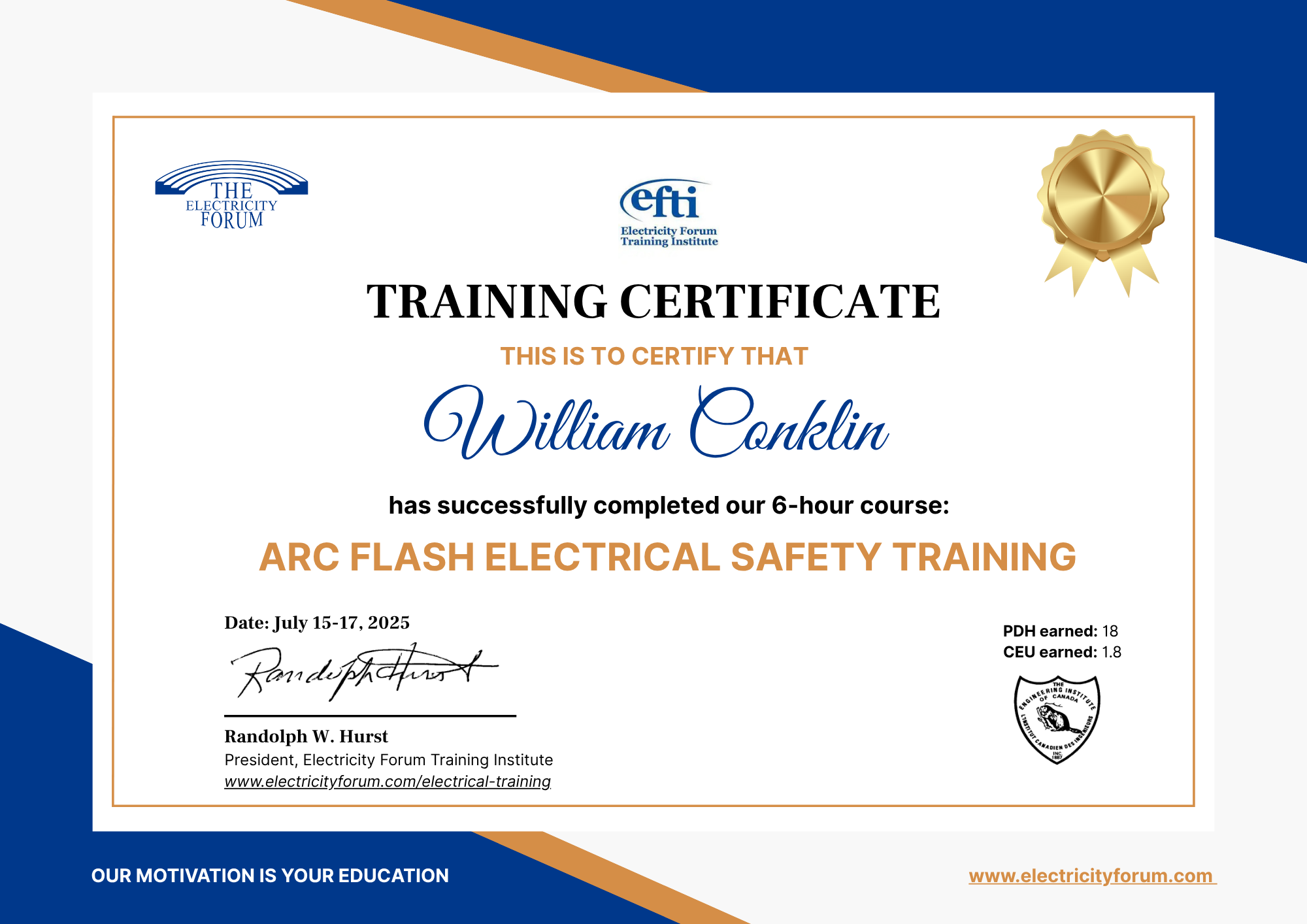Modern Power Quality/UPS/Battery System Problems and Solutions
Instructor
Peter Ho, Power Quality/UPS Consultant, Electricity Forum
DAY ONE
Session 1: Power Quality - Definitions according to National Electrical Code, IEEE STD 1100, IEEE STD 519
- The Sine Wave
- Faraday Law
- Lenz Law
- Power Waveform
- Electromagnetic Fields
- Phase Angle
- Tolerance Limits
Session 2: Transient Overvoltage Problems
- Troubleshooting Transient Overvoltage Problems
- Technical Criteria
- IEEE C62.41 Guidelines
- Transient Overvoltage Suppressors
- Suppression Technologies
- IEE Location Categories
- Gas Tubes
- Silicon Avalanche Diodes
- Metal Oxide Varistors
Session 3: Harmonics in the Power System
- Tha Harmonic Factor
- Harmonic Waveforms
- Voltage Harmonics
- Current Harmonics
- Total Harmonic Distortion
- DC Power Supplies
- Harmonic Generators
Session 4: Harmonics in the Power System - Part 2
- Sources of Harmonics
- Symptoms and Effect on Equipment
- Power Factor Capacitors and Resonance
- Harmonic Limitations (IEEE Standard 519)
- Series Resonance and Filter Design
- Third Harmonic Neutral Current
Session 5: Power Quality Survey & Power Analysis
- The Site Survey
- Receptacle Branch Circuit
- Recording the Findings
- Flat-Topped Voltage
- Neutral-Ground Voltage Test
- Current in the Neutral Conductor
- Sared Neutrals
- Performance Wiring
Session 6: Power Quality Mitigation Techniques
- K-Factor Transformers
- Power Line Conditioners
- Harmonic Filters
- Lightning/Surge Protection
- Redundant Electrical Supply/Automatic Switching
- Standby/Emergency Power Generation
DAY TWO
1. Review: Electrical and Electronic Fundamentals
- Electrical (resistance, inductance and capacitance)
- Electronic (diode, SCR, bi-polar transistor and IGBT)
- Understanding the linear and non-linear theory
- Power factor, displacement power factor, crest factor and k-rating term
- Electrical Disturbance (control and un-control)
2. Building Blocks of UPS Systems
- Rectifiers
- Choppers
- Batteries
- Inverters
- Internal bypass static switches
- Other components
3. UPS Specification
- In-depth study of rectifier and charger operation theory
- Input requirement and limitation ( Voltage, current frequency and rate of change of X )
- DC bus upper and lower setting and alarm
4. Battery Requirements
- Types of batteries
- Theory of battery operation using ohm law
- Factors that affect battery performance and life cycle
- DC maximum and cut off voltage
- Monitoring systems
5. Static Switches ( internal and external)
- SS operational limitation
- Fully rated and partial rated
6. UPS Interface
- Standby generator with UPS
- Potential generator issues ( sizing, harmonics, in-rush I, hunting, oscillation etc )
- Building communication interface ( static contact and real time on line )
- Smoke, fire, heat, security, water, repo and others
7. UPS Grounding and Neutral Configuration
- Most common issue
- Principle and method
8. UPS Maintenance
- Most common maintenance issues with UPS
9. UPS System Testing and Commissioning
- Factory and on-site testing
- Non-destructive and destructive testing
- Most items requires as per specification
- Load bank ( linear or non-linear )
- Battery discharge testing
- Battery recharging test
- Performance testing
Questions and Answers
COURSE TIMETABLE
Both days:
Start: 8:00 a.m.
Coffee Break: 10:00 a.m.
Lunch: 12:00 noon
Restart: 1:15 p.m.
Finish: 4:30 p.m.

















